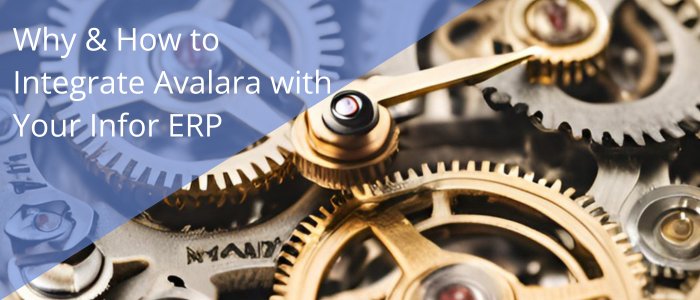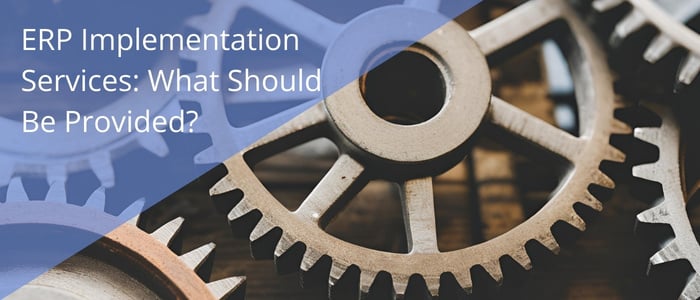The right ERP can transform a company by providing data which wasn’t previously available. In many cases, life before ERP consisted of looking for problems and then figuring out how to solve them. A good example of this is the production meeting, where supervisors and managers sit in a room and go over every job. Most of the meeting is spent looking for problems. Imagine going into the meeting knowing the problems—and starting with possible solutions. That’s what ERP can do. But getting there is a process.
Bryan Foshee
Recent Posts
How to Implement an ERP System Step-by-Step
By Bryan Foshee on 3/31/25 10:00 AM
How Manufacturers Can Improve Their On-Time Delivery
By Bryan Foshee on 3/28/25 1:13 PM
This is part two of our series on on-time delivery. Here is part one on how to measure the on-time delivery KPI.
How To Measure The On-Time Delivery KPI
By Bryan Foshee on 3/27/25 6:15 AM
Measure what you want to improve
There are many opinions as to what key performance indicators (KPIs) should be monitored at a small to medium-sized manufacturing company, but the on-time delivery (OTD) KPI is on everyone’s list. It doesn’t matter if the company is build-to-stock, a job shop, or something in-between; there are many steps in coordinating the production of a product and OTD is a nice summation of manufacturing performance.
Types Of ERP on the Market Today
By Bryan Foshee on 3/12/25 10:00 AM
When it comes to choosing an ERP system, it’s easy to get overwhelmed. The options seem endless, and everyone has an opinion about which one’s the best. Here’s the thing: There isn’t one perfect ERP system. Instead, the key is to understand the types of ERP on the market today and figure out which one makes the most sense for your specific situation. Let’s break it down.
ERP Maintenance: How To Best Use Your ERP After Implementation
By Bryan Foshee on 1/31/25 10:00 AM
Who cares how you implemented your ERP? It’s about how you use it.
Manufacturing Process Documentation Template
By Bryan Foshee on 1/16/25 7:30 AM
The case for having manufacturing documentation
At Visual South, we always recommend that our customers have solid business, or application, process documentation templates. Companies often have written procedures for quality control, human resources, safety, and the like, but not always for enterprise resource planning. Not having processes documented for your ERP software creates risk that can have disruptive effects and negatively impact the bottom line.
4 Options for Handling Tax Compliance in Your ERP
By Bryan Foshee on 11/12/24 10:00 AM
Tax compliance can be a tricky and time-consuming task, especially for manufacturing businesses operating across multiple jurisdictions. Most companies in the industry have an ERP system in place that helps streamline operations and internal processes, but these solutions don't always come with robust tax compliance features. To keep your business growing and avoid common tax pitfalls, here are a few options for handling tax compliance within your ERP system:
Why & How to Integrate Avalara with Your Infor ERP
By Bryan Foshee on 10/30/24 10:00 AM
Every manufacturer knows that managing tax compliance can be a headache—especially when you’re dealing with multiple states, countries, and ever-changing regulations. Add in managing exemption certificates, and it’s enough to slow down your business.
3 Types of SyteLine Training You May Need
By Bryan Foshee on 7/31/24 10:00 AM
The benefits of training
CloudSuite Industrial (SyteLine) is a sophisticated, robust ERP solution with a full complement of functionality that provides solutions to enterprises of all sizes. ERP software depends on processes, and tools to support those processes, along with people who understand how to do their jobs. Think of the software as an airplane—even the newest, best model still needs a pilot, so training is key. A plane is no good if the person commanding it does not know how to fly it.
ERP Implementation Services: What Should Be Provided?
By Bryan Foshee on 7/10/24 10:00 AM
Early in my career, someone shared a piece of wisdom that resonates deeply: “There isn’t anything more expensive than cheap ERP.” Over time, I’ve seen the truth in this statement. The top companies view their ERP system as a strategic asset and invest accordingly. Like sophisticated equipment on the shop floor, an ERP system requires regular maintenance, training, and updates to perform at its best. Neglecting these aspects can lead to suboptimal performance and missed opportunities.













